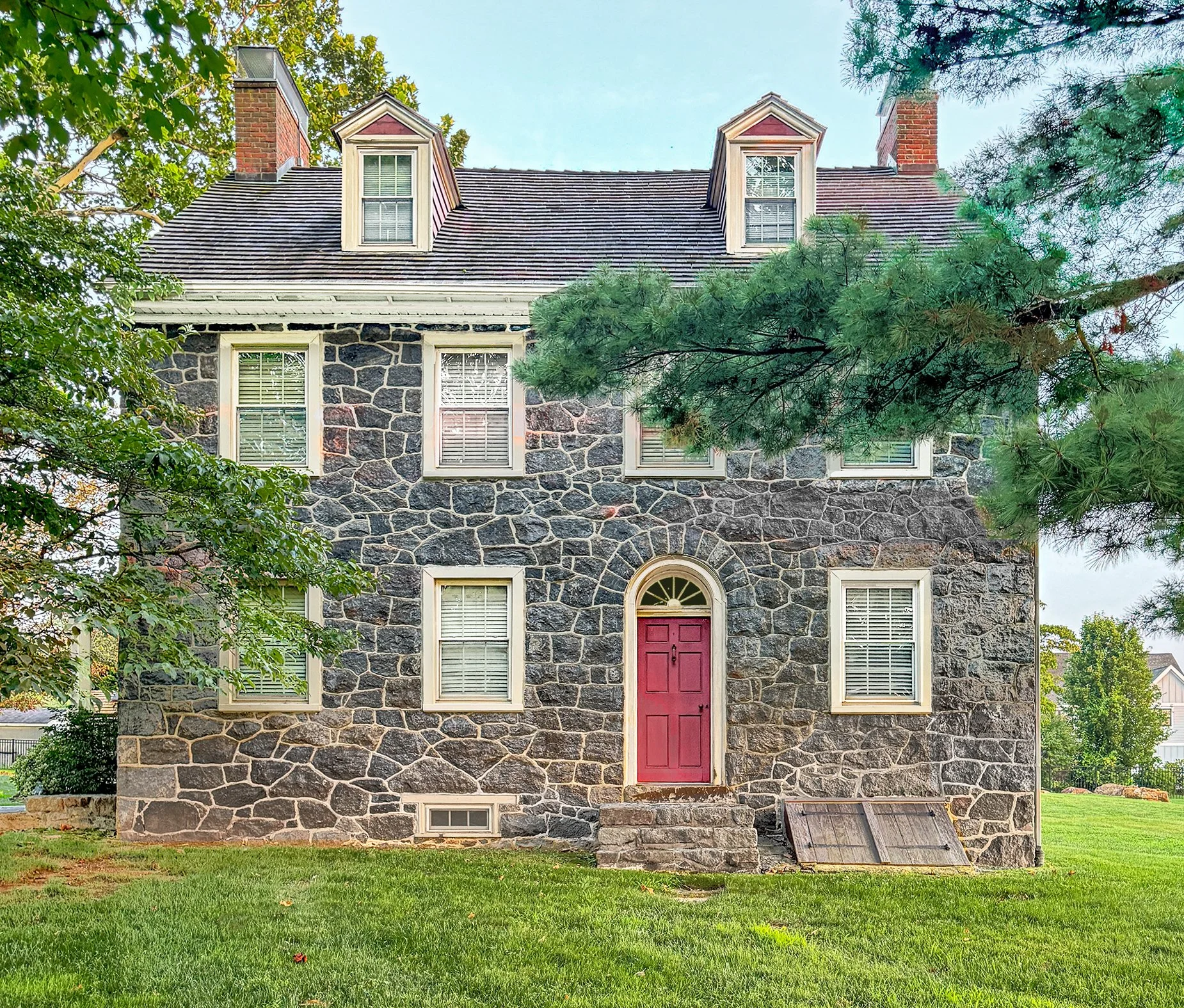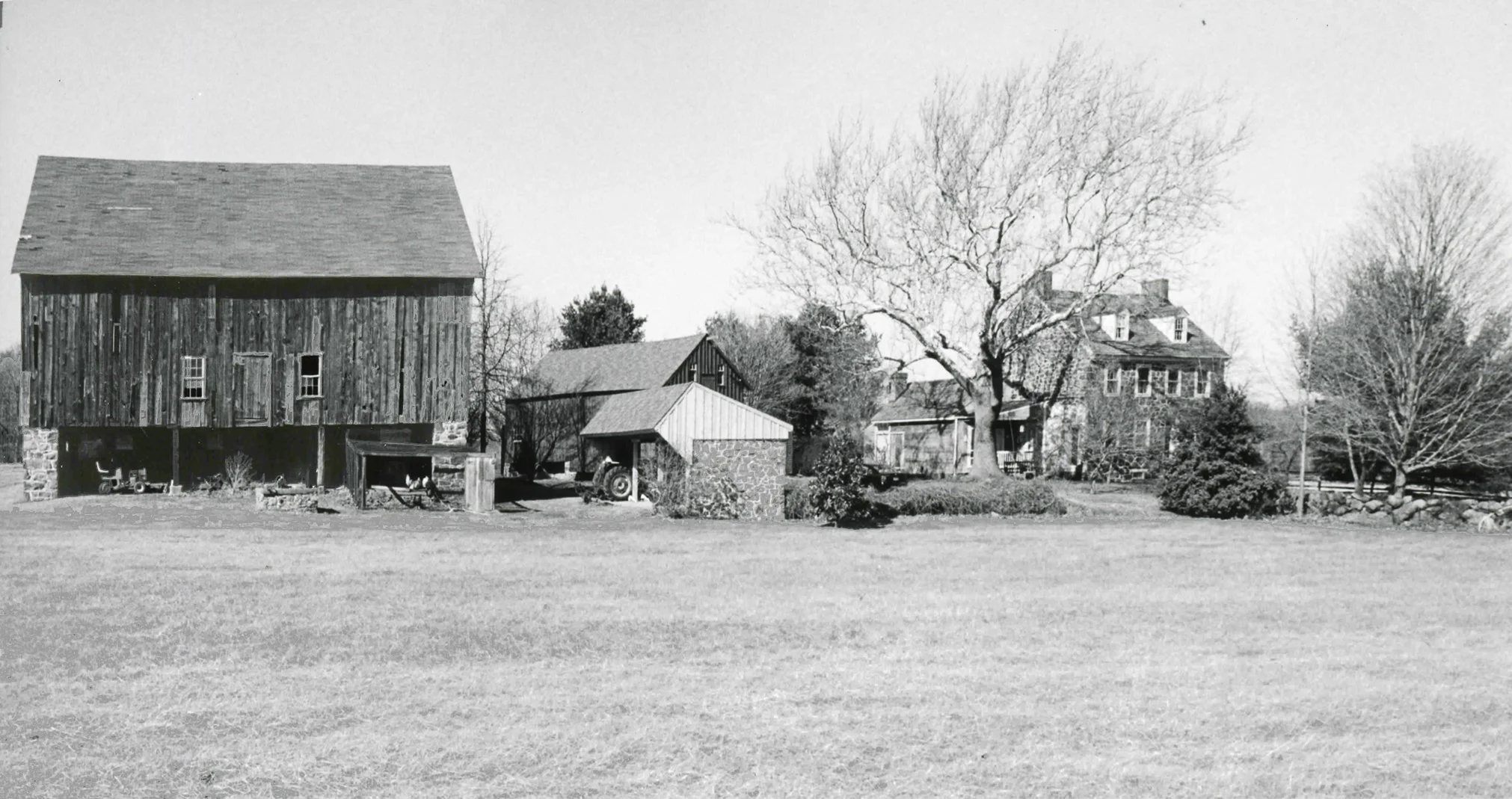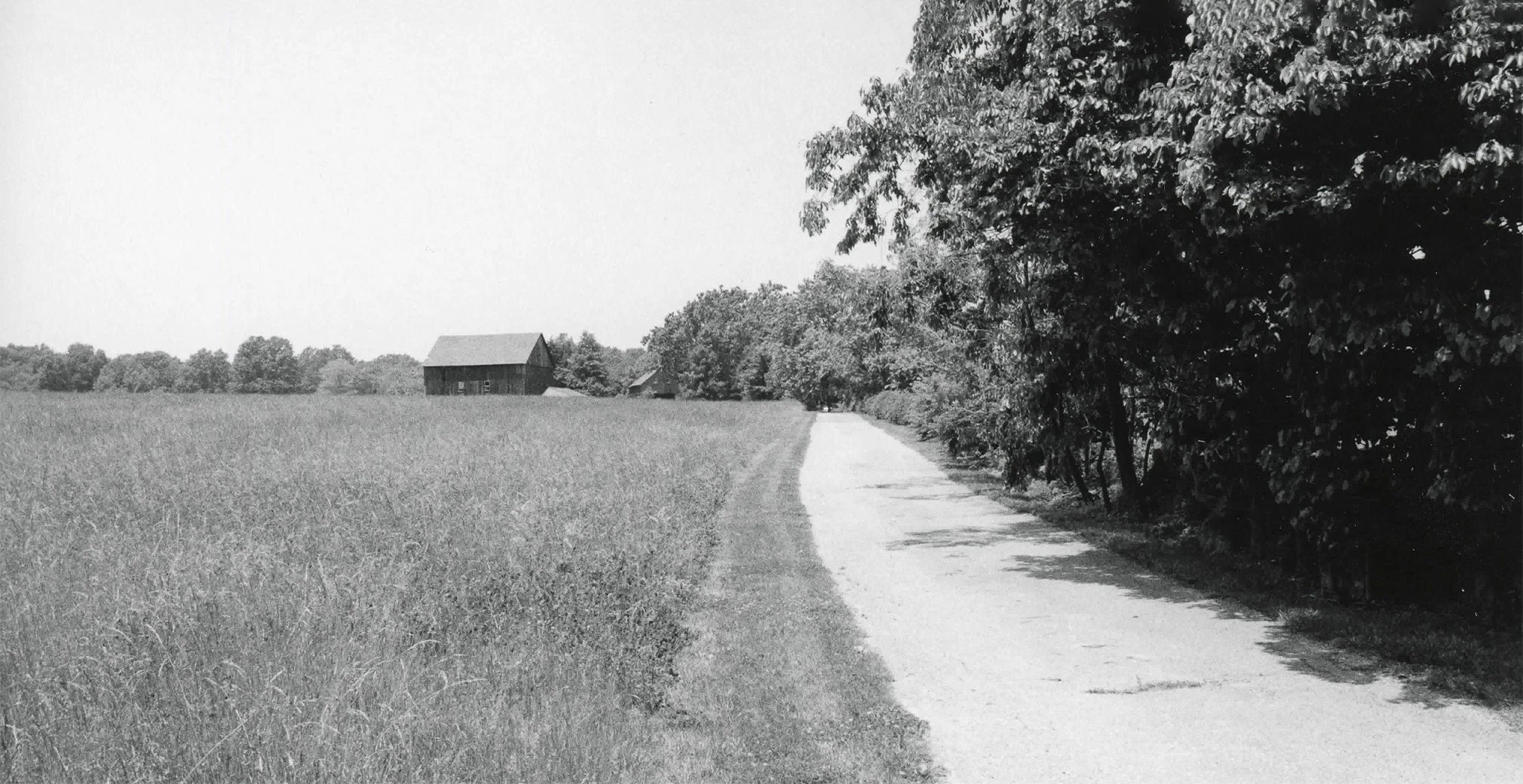Historic Quaker Houses of Delaware County, PA
The Booth Farmhouse
Built in 1819
Above: The Booth Farmhouse, 3221 Foulk Road, Boothwyn. Restored by John Milner Associates in 1979. Image source: Lee J. Stoltzfus
The Booth family emigrated from Yorkshire, England ca. 1712. Thomas Booth (1764-1825) purchased this Bethel Township farm in the 1790s from Robert Pyle. Local Quakers held monthly meetings in the Pyle log house on this property.
Thomas Booth built this Federal-style farmhouse in 1819 for his eldest son James Booth and wife Lydia (Forwood) Booth. The Booths built the barn around this same time. The farm remained in the Booth family for six generations. Boothwyn in Upper Chichester Township and Booth’s Corner in Bethel Township are named for this family.
The Booth Farm in 2001
Photos - National Register of Historic Places:
Above: The Booth Farm in 2001. Image source: National Register of Historic Places
Above: The Booth Farm in 2001. Image source: National Register of Historic Places
The Farmhouse’s Building Stone -
Mafic Gneiss:
Above: The building stone of the Booth farmhouse is mafic gneiss. Image source: Lee J. Stoltzfus
Local mafic gneiss is a dark, dense metamorphic rock found in parts of this area. It has been used historically as a durable building stone. Its resistance to weathering made it a practical choice for foundations, retaining walls, and occasionally entire structures, especially in areas where the stone was readily quarried on site. The stone is often blended with other local stone in vernacular construction.
Above: Image source: PaGEODE
Above: Text image source: National Register of Historic Places Registration Form
1688: A Landmark Year for Quaker Social Activism
This Farm’s Role in the 1688 Year of Reform:
Above: William Penn’s treaty with the Indians, by Quaker artist Edward Hicks, ca. 1830, Image source: Philadelphia Museum of Art.
This farm is linked to an important moment in the history of early Quaker social activism. In the 1600s this farm was owned by Robert Pyle, before the Booths lived here. Local Quakers held meetings in Pyle’s log house. On March 12, 1688, at a Friends meeting here at the Pyle property the Quakers took a landmark stand against the sale of alcohol to Native Americans. They viewed alcohol sales to Indians as harmful and morally wrong. Pyle was a justice of the Chester County Court.
Also in 1688, on April 18, Quakers in Germantown issued the first formal protest against slavery in the British North American colonies. Together, these two actions mark 1688 as a landmark year in the Quaker movement for social reform. This farm’s connection to the alcohol protest places it within that broader story of early Quaker efforts to live out principles of justice, equality, and peace in colonial Pennsylvania.
Links:







